

Section

Back
Few herbs in Ayurveda have garnered as much attention and reverence as Brahmi. For centuries, this revered plant has been celebrated for its remarkable cognitive-enhancing properties as well as its ability to promote overall well-being.
Recently, however, a debate has emerged centering around the true identity of Brahmi. When someone speaks of Brahmi, they may refer to two different herbs: Gotu Kola vs Bacopa. Both of these herbs have been referred to as Brahmi in various Ayurvedic texts and traditions, thus causing curiosity and confusion among holistic health practitioners.
The shared name stems from both herbs’ ability to support mental clarity, focus, and memory. So which one is the “real” Brahmi? In this article, we’ll explore the differences and similarities between Gotu Kola and Bacopa, unraveling the connection between their histories and benefits.
Contents
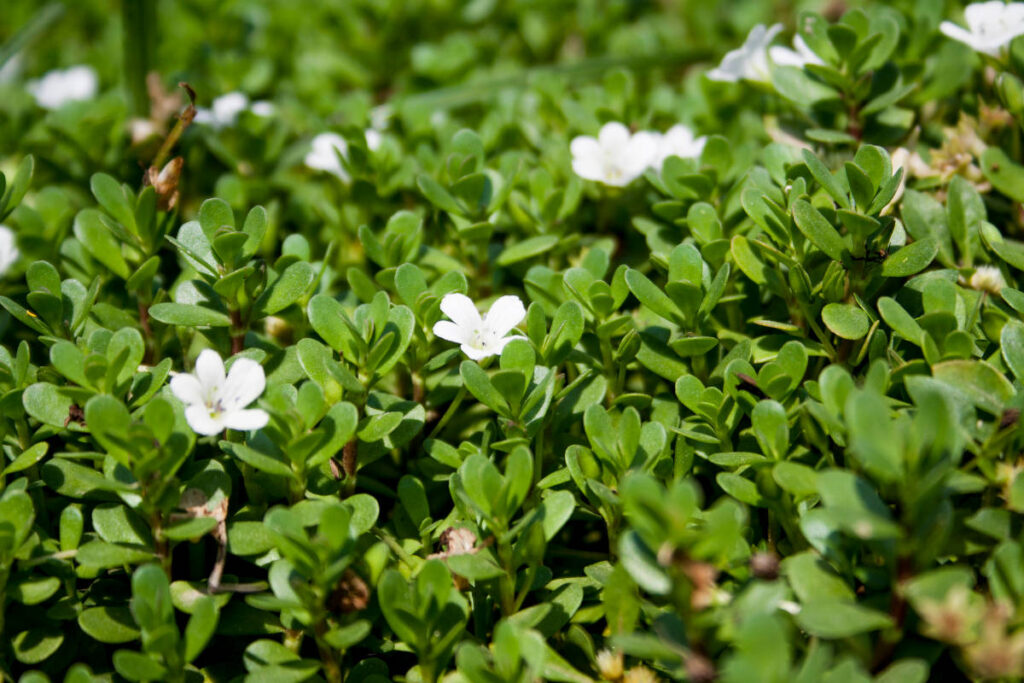
What is Brahmi? Gotu Kola vs Bacopa
The name “Brahmi” is derived from the Sanskrit word “Brahman,” which refers to the supreme consciousness in Hindu philosophy. Brahmi is believed to possess the power to awaken the mind, expand consciousness, and enhance cognitive function.
In Ayurveda, Brahmi is the term used to describe herbs known for their adaptogenic properties and cognitive support. Both Gotu Kola and Bacopa, with ancient roots in Ayurvedic medicine, have been used to support mental well-being. Historically, both Gotu Kola and Bacopa have been called “Brahmi” in various regions in India, due to their association with promoting mental health, memory, and clarity.
Over time, regional variations in naming and the oral transmission of knowledge led to the interchangeable use of the term “Brahmi” for both plants. As their identities became intertwined, it led to confusion over which herb is truly Brahmi.
Despite the confusion over which herb is the original Brahmi, Gotu Kola and Bacopa are very distinct herbs. Although they are similar in some ways, each has unique properties and benefits. Stay tuned as we take a deep dive into the worlds of Gotu Kola vs Bacopa.
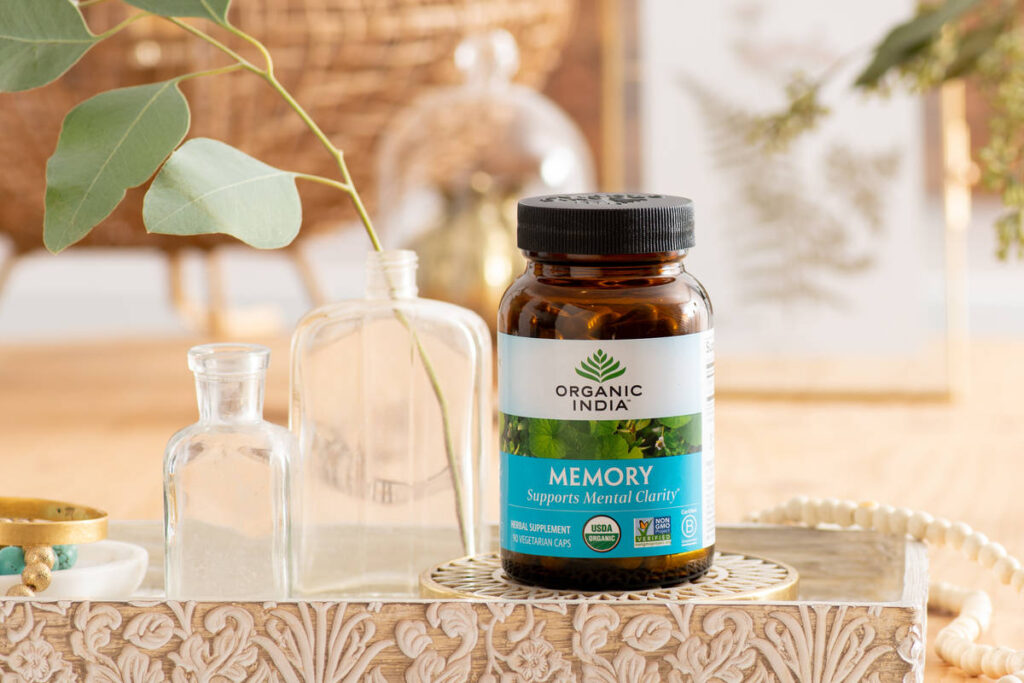
What is Gotu Kola?
Gotu Kola, scientifically known as Centella asiatica, is a staple in both Ayurveda and Traditional Chinese Medicine (TCM). An herb in the parsley family, its history can be traced back to ancient civilizations in India, China, and Southeast Asia.
In Ayurvedic medicine, Gotu Kola is sometimes called “the herb of longevity” because it supports vitality and well-being. It is revered as a Rasayana, or rejuvenating herb, and is widely respected for enhancing memory, promoting mental clarity, and supporting overall cognitive function.
Use of Gotu Kola
Gotu Kola is a versatile herb valued in Ayurveda for its ability to balance all three doshas—Vata, Pitta, and Kapha. It is mainly revered for its role in enhancing meditation, improving memory, and reducing stress. In Traditional Chinese Medicine, Gotu Kola is used for its cooling properties that replenish vital life force, or “qi.”
Modern-day medicine recognizes Gotu Kola as having certain chemical properties that promote wound healing, support healthy skin, and enhance circulation.
Benefits of Gotu Kola
Gotu Kola is a remarkable herb that supports brain health and cognitive function. Research shows that Gotu Kola contains compounds called triterpenoids, which may protect brain cells from oxidative stress. As an adaptogen, Gotu Kola helps the body adapt to stress, promote a sense of calm, and enhance focus. These neuroprotective properties make Gotu Kola a valuable ally in maintaining cognitive function through aging.
Beyond its cognitive benefits, Gotu Kola offers an array of health advantages such as aiding in skin rejuvenation and promoting healthy blood circulation.
Appearance of Gotu Kola
Gotu Kola is quite a distinctive herb. It has small, round fan-shaped leaves that resemble miniature lily pads. These leaves grow at the top of a long stem and multiply in clusters close to the ground, forming a dense carpet as the plant thrives. The leaves are typically vibrant green, and have a slightly scalloped edge, giving them a unique and easily recognizable appearance.
Energetics of Gotu Kola
In Ayurveda, Gotu Kola is considered to be bitter, sweet, and cooling. The cooling nature makes it beneficial for balancing excess heat in the body and mind, often associated with mental agitation and a poor inflammatory response. Its calming and grounding qualities make it an ideal herb to soothe an overactive mind and manage mental stress.
How Does Gotu Kola Grow?
Gotu Kola is a hardy and adaptable herb that thrives in tropical and subtropical climates. It prefers shady areas near water sources such as streams and ponds. The plant is considered a stolon, or a creeping horizontal plant stem or runner. It takes root at intervals as it spreads, forming dense mats of foliage. This type of growth pattern makes Gotu Kola an excellent ground cover.
Where Does Gotu Kola Grow?
Gotu Kola is a perennial plant native to China, Southeast Asia, and India. It has been successfully cultivated in other regions around the world. At ORGANIC INDIA, we take great pride in growing Gotu Kola at our training and research regenerative farm, Brindavan Innovative Farm, in Lucknow, and also in our Regenerative Organic Certified® farm in Azamgarh. These groundbreaking farms are where we test and refine regenerative practices like drip irrigation, lunar farming, and biodiversity.
Brindavan Farm practices ancient farming practices like lunar farming and respect and care for the resident cows. To learn more about our regenerative farming practices, please check out our Impact Report.
What Parts of Gotu Kola Are Used?
The entire plant—leaves, stems, and flowers—are used in traditional medicine for their therapeutic properties. However, the leaves are most commonly used as they contain the highest concentration of active compounds. The leaves are typically dried and powdered for use in teas, tinctures, and capsules. The stems and roots also contain beneficial compounds and are sometimes used in herbal formulations.
Understanding the Science Behind Gotu Kola
Modern research supports Gotu Kola’s traditional use of supporting cognitive function. Studies show that Gotu Kola contains several bioactive compounds, including rutin, quercetin, gallic acid, and catechin. These compounds have been shown to have various health benefits, like improved cognitive function, improved circulation, enhanced memory, and potential benefits for a healthy inflammatory response.
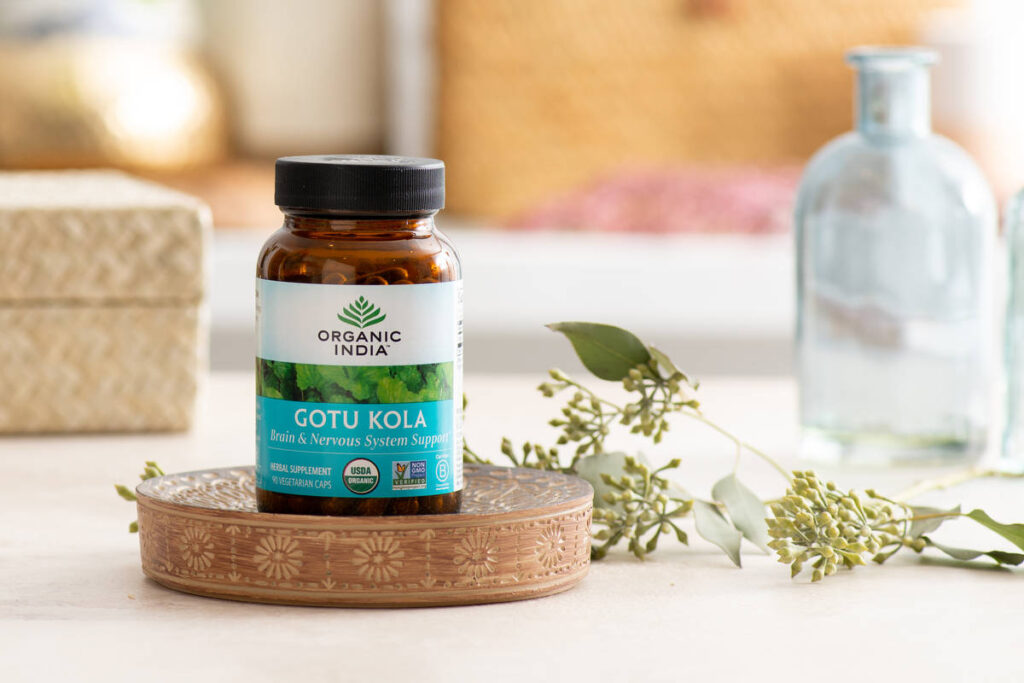
What is Bacopa?
Let’s shift our focus now to Bacopa, another herb with a rich history in Ayurvedic medicine and another namesake of Brahmi. Like Gotu Kola, this herb has been referred to as “Brahmi” in various Ayurvedic texts. Bacopa has been celebrated for its memory-enhancing properties, and its ability to improve cognitive function and reduce stress.
Use of Bacopa
In Ayurvedic practice, Bacopa is used for memory and learning, stress reduction, and cognitive support. It may also help provide a sense of calm for the overactive mind, support healthy blood pressure levels, and support a healthy inflammatory response.
Benefits of Bacopa
Bacopa contains powerful antioxidants. It supports brain health by protecting the brain from oxidative stress and promoting the growth of new neurons. Research shows that Bacopa may help improve both short-term and long-term memory, as well as enhance the speed at which an individual processes information. These cognitive benefits make Bacopa a popular herb for anyone looking to support their mental acuity. Bacopa is often used to combat age-related cognitive decline, making it a popular supplement for brain support.
Appearance of Bacopa
Bacopa is quite different from Gotu Kola in appearance. Bacopa has small, succulent leaves and delicate white to light purple flowers. The leaves are oblong and arranged on opposite sides of the stem. Like Gotu Kola, Bacopa often forms dense mats, spreading across the moist soil or even floating on the surface of the water.
Energetics of Bacopa
In Ayurveda, Bacopa is considered to be bitter and cooling. Its cooling nature makes it particularly beneficial for balancing excess heat in the body and mind. Similar to Gotu Kola, Bacopa is used to balance all three doshas, but it is particularly effective at soothing Pitta, which governs heat and metabolism.
How Does Bacopa Grow?
Bacopa is a trailing plant, making it excellent for ground cover, hanging planters, or aquatic gardens. It usually grows only four to six inches high and thrives in marshy areas and along riverbanks. Bacopa can bloom almost nonstop through the entire growing season, showcasing its dainty white flowers.
Where Does Bacopa Grow?
While Bacopa is native to wetland areas in India and neighboring countries, it has been successfully cultivated in various parts of the world. As a perennial, it can be grown in USDA Hardiness Zones 8-11, but in colder climates, it is grown as an annual.
At ORGANIC INDIA, we grow Bacopa in Lucknow at our training and research regenerative farm called Brindavan. We also grow Bacopa at a second site—our Regenerative Organic Certified® farm in Azamgarh. These carefully managed cultivation farms ensure that we produce high-quality Bacopa while adhering to sustainable and regenerative agricultural practices.
Learn more about our regenerative practices in our Impact Report.
What Parts of Bacopa Are Used?
Like Gotu Kola, the entire aerial part of the Bacopa plant is considered valuable, but the stems and leaves are most commonly used. These aerial parts of the plant contain the highest concentration of active compounds and are typically dried and powdered for use in teas, tinctures, and capsules. The flowers of Bacopa are also sometimes included in herbal preparations.
Understanding the Science Behind Bacopa
As with many natural herbs, Bacopa’s benefits are backed by science that is continually expanding. Research shows that Bacopa contains several bioactive compounds, including bacosides, which are responsible for Bacopa’s cognitive-enhancing effects. These compounds have neuroprotective properties, potentially preserving cognitive function as we age.
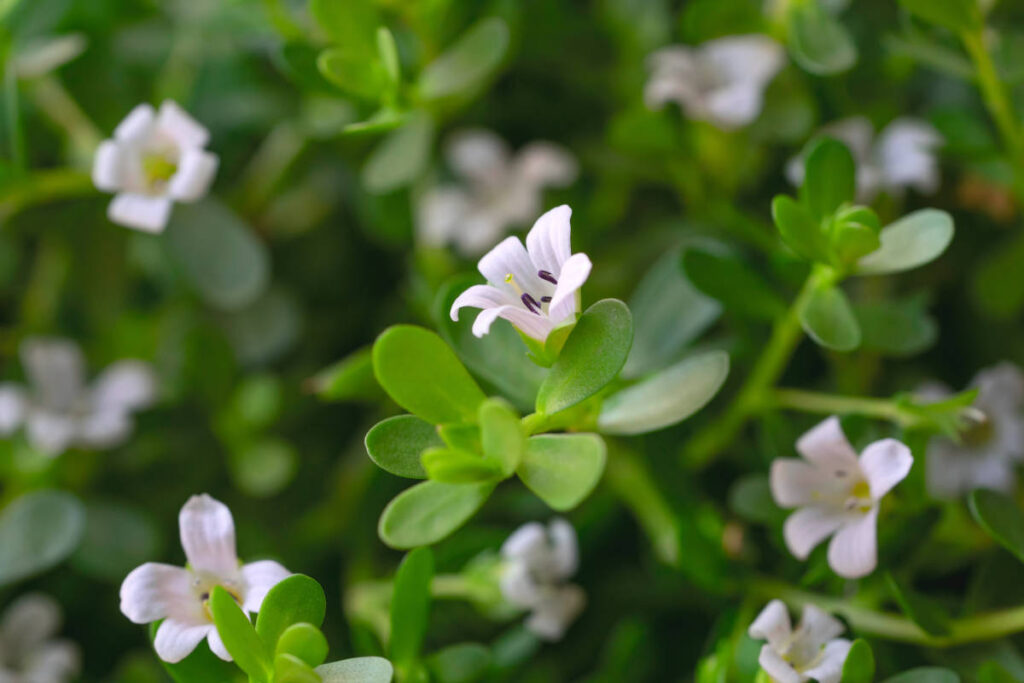
Gotu Kola vs Bacopa: Which is the real Brahmi?
Now that we’ve explored both Gotu Kola and Bacopa, we return to the central question: Which is the real Brahmi? The truth is, that both herbs may claim this title. Both Gotu Kola and Bacopa possess the ability to enhance cognitive function and promote mental clarity. And both have been used for centuries in Ayurvedic practice to support memory and overall well-being.
But rather than trying to determine a single “true” Brahmi, it may be helpful to appreciate the unique benefits that both herbs bring to the table. Gotu Kola excels in supporting overall brain health, promoting healthy circulation, and enhancing wound healing. Bacopa, on the other hand, stands apart in its ability to improve memory, reduce stress, and support cognitive function.
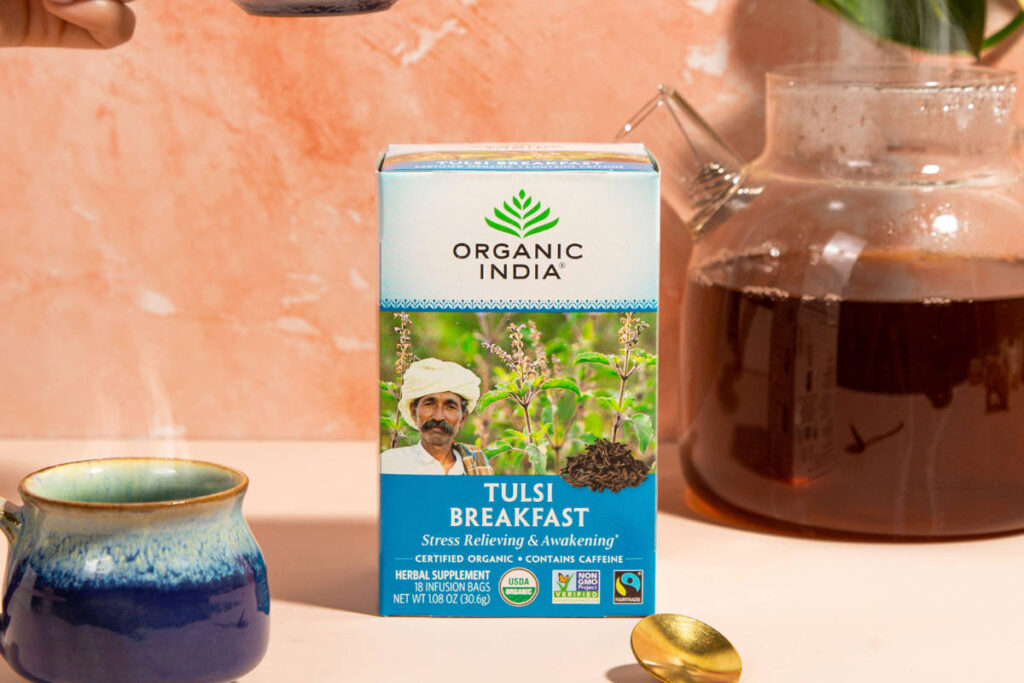
Experience Brahmi
Now that we know it’s not gotu kola vs bacopa, but rather gotu kola and bacopa, we know they each play an important role for wellness. At ORGANIC INDIA, we recognize the value of both these incredible herbs. That’s why we’ve incorporated them into our various herbal products. Now you can experience the benefits of Brahmi whether from Gotu Kola or Bacopa.
Our Memory capsules contain Gotu Kola for memory and cognitive function, and Bacopa for mental clarity and productivity.
If you prefer, our Gotu Kola Brain & Nervous System Support capsules offer natural, clean energy while supporting a healthy stress response. For those looking for a gentle morning boost, our Tulsi Breakfast Tea, now featuring Bacopa, helps you stay sharp and focused.
At ORGANIC INDIA, we are committed to providing the highest quality herbs, sustainably grown and ethically sourced for healthy, conscious living. We invite you to explore the world of Brahmi and experience the transformative power of these remarkable herbs.
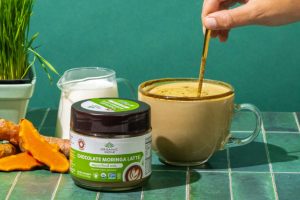

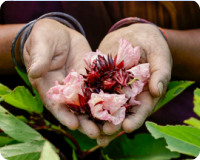

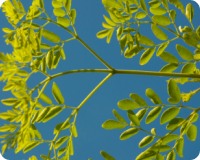

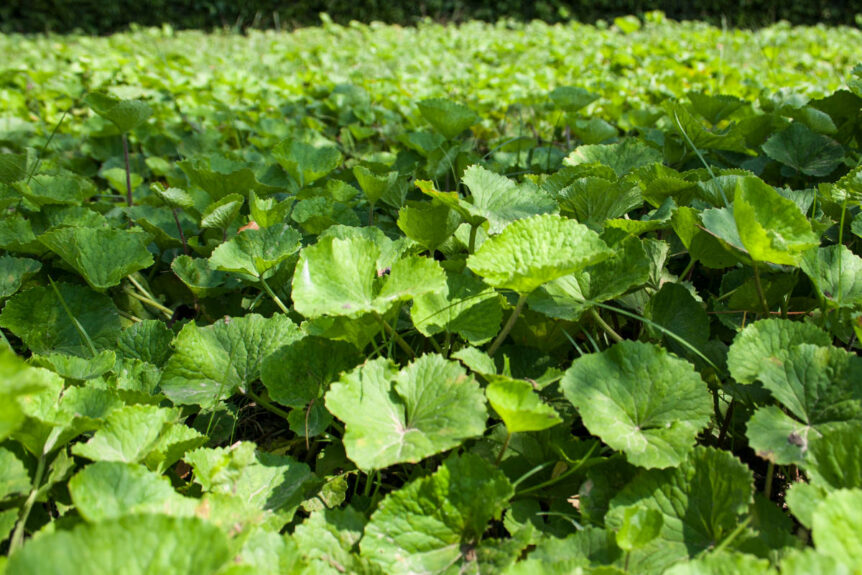
 Kate Tant is a professional health and wellness writer with a strong passion for holistic wellness. Her writing covers topics from Ayurvedic herbs and practices to nontoxic living and intermittent fasting. She is dedicated to helping and encouraging individuals seeking natural solutions to their health
Kate Tant is a professional health and wellness writer with a strong passion for holistic wellness. Her writing covers topics from Ayurvedic herbs and practices to nontoxic living and intermittent fasting. She is dedicated to helping and encouraging individuals seeking natural solutions to their health